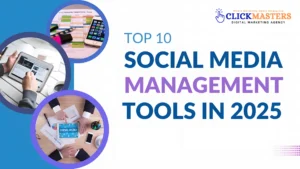The rise of voice assistants like Siri, Google Assistant, and Alexa has significantly changed the way people search for information online. As voice search continues to grow, it is reshaping the way businesses and website owners approach SEO (Search Engine Optimization). A critical aspect of this evolution is how voice search influences backlinks, a foundational element of traditional SEO. This article explores how voice search impacts SEO and backlinks, and offers actionable strategies to optimize your website for Audio search.
What is Voice Search?
Voice search refers to the process of using voice commands to search for information on the internet rather than typing queries into a search engine. With the advent of smartphones, smart speakers, and voice-activated digital assistants, Audio search has become increasingly common. Users simply speak their queries, and their devices respond by providing relevant information. It’s often used for quick tasks, such as finding directions, setting reminders, or getting answers to questions.
Voice search relies on Natural Language Processing (NLP), which enables devices to understand human speech and convert it into usable search queries. Over time, Audio search has become more refined, providing more accurate, conversational, and context-aware responses.

How Our Agency Boosts Your Website Traffic
- SEO That Brings Long-Term Success
- Transform Your Traffic into Loyal Customers
- SEO Strategies for Sustainable Growth
The Impact of Voice Search on SEO
SEO best practices were tailored for text-based searches. However, with the increasing preference for voice searches due to their convenience, consumers are shifting toward voice-based queries. Similarly, businesses are leveraging voice technologies like VoIP services, voice-activated apps, and smart speakers to enhance user experiences. The rising popularity of voice technology is also influencing how search engines rank content.
Audio searchhas significantly transformed traditional SEO strategies. Here are a few key ways it impacts SEO:
Long-Tail Keywords
Voice search often involves more natural, conversational queries, which tend to be longer than typed keywords. For example, instead of typing “best pizza near me,” an audio search query might be, “What are the best pizza places near me?” This shift to longer, more specific phrases has made long-tail keywords more valuable in SEO.
Local Search and “Near Me” Queries
Audio search is commonly used for local searches, such as finding nearby restaurants, shops, or services. Search engines prioritize local results when processing voice searches, so businesses must ensure they are visible in local search directories, such as Google My Business, and use local SEO tactics to improve visibility.
Featured Snippets and Position Zero
Many audio search queries pull information directly from featured snippets (position zero) in search results. This means that having your content featured in a snippet can improve your chances of being the response to an audio search query. To rank in position zero, websites need to create concise, informative, and structured content that answers specific questions.
Faster Results and Mobile Optimization
Voice searches tend to provide immediate answers, which means websites need to load quickly and be mobile-friendly. As most audio searches happen on mobile devices, ensuring that your website is optimized for mobile can boost your visibility and performance in voice search results.

Best Ways to Optimize Your Website for Voice Search
Voice search SEO is more than just about researching and placing keywords. If you run a business website, making sure it’s optimized for audio search should be a top priority. Here are some practical tips to help you tweak your website for voice search:
Focus on Conversational Keywords
Shift from traditional keywords to more conversational phrases that reflect how people speak. Consider questions people might ask when looking for your products or services.
Use Structured Data
Implement structured data on your website to help search engines understand your content better. This can increase the likelihood of your website being featured in a snippet.
Optimize for Local SEO
As most audio searches are location-based, optimize your website for local SEO. Make sure your NAP (Name, Address, Phone Number) details are consistent across directories and that your Google My Business profile is complete and accurate.
Speed Up Your Website
Since voice search often provides quick answers, your website must load fast. Use tools like Google PageSpeed Insights to optimize load time.
Create FAQ Pages
Voice searches often involve questions, so creating an FAQ page with concise, clear answers to common queries can increase your chances of being featured in a snippet.
Optimize for Mobile
Ensure your website is fully responsive and optimized for mobile devices. This is crucial since most audio searches happen on smartphones and other mobile devices.
Use Natural Language in Your Content
Write your content in a natural, conversational tone. Avoid overly formal language and opt for phrases that reflect how people speak.
Target Position Zero
Aim for the coveted position zero in Google’s search results. Use clear, direct answers to common questions in your content, especially in blog posts, articles, and FAQs.
Leverage Backlinks for Authority
Backlinks are still a major ranking factor. Focus on building quality backlinks from authoritative sources to increase your website’s credibility and improve your chances of ranking in audio search results.
Use a Mobile-Friendly, Voice Search-Friendly Layout
Ensure your website’s design supports audio search by being easily navigable through voice commands. Use clear headings, short sentences, and easily digestible content.
How Does Voice Search Influence Backlinks?
BacklinkS connections from other websites pointing to your sitE continue to be one of the most critical factors in SEO. However, audio search changes how backlinks can influence rankings. Here’s how:
Increased Focus on Authority
Since audio search prioritizes fast, relevant, and authoritative results, websites with quality backlinks from trusted sources are more likely to rank higher. A strong backlink profile signals to search engines that your website is reliable and relevant, which can help secure a spot in featured snippets.
Backlinks to Featured Snippets
Content that ranks for featured snippets is often the result of strong SEO and quality backlinks. As audio search often retrieves answers from these snippets, the quality and relevance of the backlinks pointing to your content will have a significant influence on its visibility.
More Local and Niche Backlinks
As voice search is highly localized, local backlinks become more important. These backlinks signal to search engines that your business is relevant in a specific location, increasing the chances that your website will show up in local voice search queries.
Content Structure and Backlinks
Backlinks don’t just come from anywhere; they tend to come from content that is valuable, well-structured, and authoritative. By optimizing your content to answer questions in a conversational tone, you can attract more backlinks from other sites, which can, in turn, boost your voice search ranking.

How Our Agency Boosts Your Website Traffic
- SEO That Brings Long-Term Success
- Transform Your Traffic into Loyal Customers
- SEO Strategies for Sustainable Growth
Conclusion
As voice search continues to grow in popularity, its influence on SEO and backlinkS becomes more pronounced. Optimizing for voice search requires a shift toward conversational keywords, a focus on local SEO, and attention to content structure. Additionally, backlinks remain a critical ranking factor, but now they need to support a broader strategy that includes answering specific, conversational queries and providing fast, authoritative content.
FAQs
Does voice search prioritize websites with more backlinks?
Yes, backlinks still play a crucial role in SEO for voice search. Websites with authoritative backlinks are more likely to rank higher in voice search results, especially in featured snippets and local queries.
How does voice search affect keyword strategy?
Voice search tends to use more natural, long-tail keywords. Businesses should focus on creating content around conversational phrases and questions that people are likely to ask.
Can backlinks help improve my chances of appearing in voice search results?
Absolutely! Backlinks from high-quality, authoritative websites can improve your website’s credibility, which is essential for ranking in voice search results, particularly for featured snippets.
How do I improve my site’s chances of being featured in a voice search?
Focus on creating well-structured content that answers specific questions. Use schema markup and ensure your content is mobile-optimized and fast-loading.








